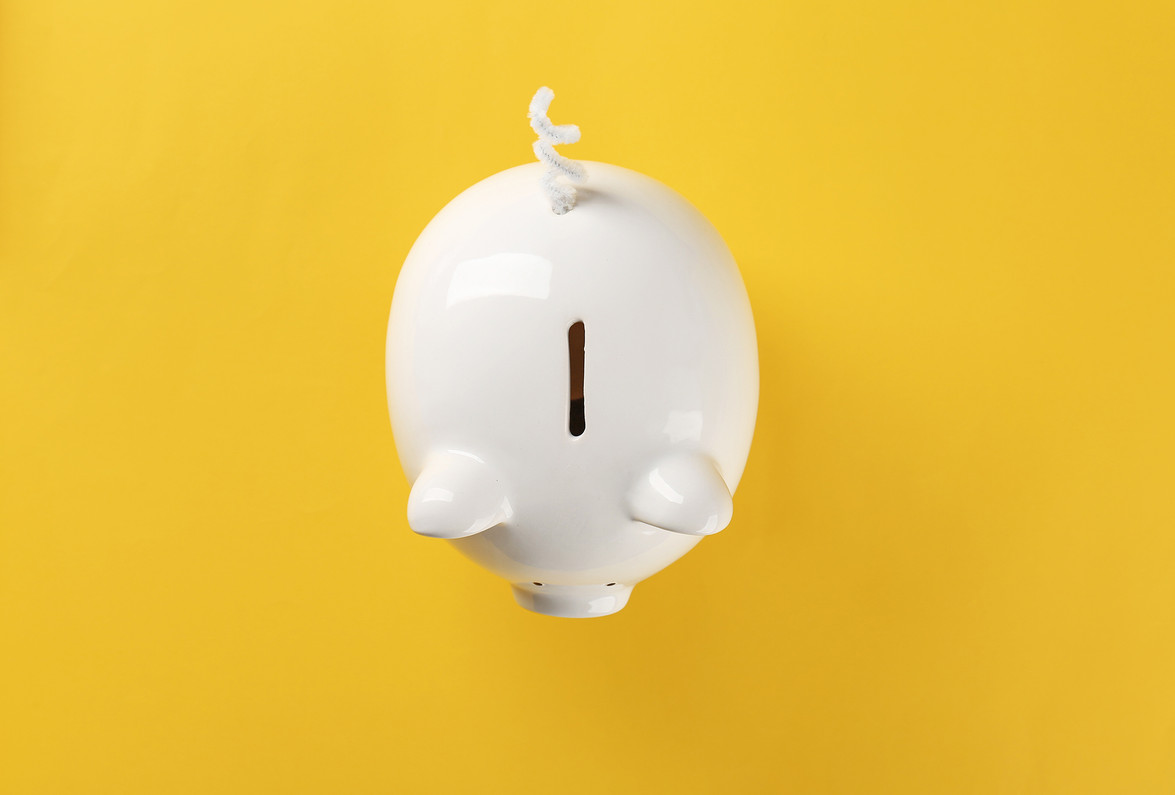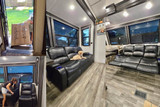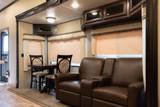RVing On a Budget
How to Save Gas on Your Next Trip
When you're on the road, you're probably always scanning for the lowest gas prices before your tank starts to run low. Maybe you've even got an app installed on your phone to let you know where the best deal is up ahead. But, did you know there are things you can do to make the most of every gallon?
Saving on gas doesn't just happen at the pump. It happens over every mile. If you're worried about saving a few dollars on your next RV road trip this summer, keep these tips in mind to cut down on the cost of gas, and conserve as much fuel as possible.
Lower Your Speed
We know it's tempting to hit the gas a little harder when you're ready to get to a destination, but even a few extra miles per hour can make a big difference to your gas tank. The more your speed increases, the more your aerodynamic drag increases. Even a 10 mph decrease in speed can conserve the amount of fuel you use by about 15%, so obey those speed limits whenever possible!
Don't Slam on the Brakes
It's not always possible to determine when a sudden brake will be needed. But if possible, try to anticipate the general flow of traffic, and slow down gradually instead of suddenly. Slow acceleration and breaking can help to boost your fuel economy by up to 20%.
Close the Windows
You may have heard that having the A/C on affects your gas mileage, and that's true. But, you're not saving much more by having your windows open. In fact, open windows can increase your drag and have a significant effect on your fuel economy – this is especially true when you're driving at higher speeds on a highway, etc.
Don't Stay Idle
Unfortunately, RVs are known for having to wait in lines. Whether you're at a long toll booth, waiting to get into your campsite, or just stuck in traffic, idling can be a common occurrence. But, did you know it will actually take less fuel to shut off your rig and restart it than it does to sit idle for more than a minute? If you anticipate being 'stuck' in one place for awhile, cut off the engine. This might take some getting used to at first, but you'll save in the long run.
An extra piece of advice is to always make sure your rig is up to date on maintenance. Everything from dirty air filters to old spark plugs can have an effect on your fuel economy, so be sure to get everything checked out before you hit the road, and you'll be starting out in great shape.
Making the most of your fuel economy is easier than you might think. A few simple changes can make a big difference, and most of these changes won't cause any additional inconvenience. To see for yourself how much you can save, compare your fuel costs last year to this year, after using a few of these tips. You'll get the most out of each and every trip, and you'll have extra money to spend elsewhere.
Recent Posts
-
Traveling to the RV Hall of Fame in Elkhart, IN
If you are traveling to Elkhart, IN to see the RV Hall of Fame, getting off the toll road at exit 96 …Nov 14, 2025 -
Best RV Air Conditioners of 2025: An Expert Guide From RecPro
Quick Answers Best overall RV air conditioner: RecPro 15K Quiet AC with Heat Pump (RP-AC3800) Best f …Oct 29, 2025 -
The Nuclear Nomads Expand Sofa with New Recliner Section Install
The Nuclear Nomads are a full time RV family living in south Florida. Andi and Joey value quality ti …Oct 24, 2025 -
Trailer Wiring Guide: How to Wire Your Trailer for Safety and Efficiency
Table of Contents 1. Common Types of Trailer Connectors 2. Trailer Wiring Diagrams: Color Codes and …Aug 20, 2024 -
How to Keep Your Pets Safe While Camping
RVing and camping are a great getaway from the hustle and bustle of work and the city and the day-to …Jul 02, 2024 -
Why Replace Your RV Furniture?
You may wonder when is the best time to replace your RV furniture. There is no one right answer to t …May 20, 2024







